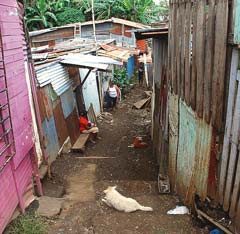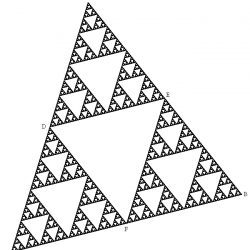 Medicine is the set of techniques and knowledge aimed at preserving or recovering the health of the human being. To achieve its goals, medicine is based on a series of procedures: diagnosis, which consists of the correct identification of the problems that afflict the patient; treatment, which consists of the measures to be taken to alleviate illnesses, trying to achieve a cure, and finally, prevention, which consists of the measures taken to avoid possible evils. Consequently, the practice of medicine has as its primary goal the preservation or restoration of people's health, understood as the state of biological, psychological and social well-being of individuals. However, the scope of medical science exceeds this main objective and is also directed to the promotion of health (education of people in themselves and of the general population, with greater relevance in those inhabitants with greater risk) and the task assistance for those individuals in whom recovery of health is not possible, such as the terminally ill or severely disabled.
Medicine is the set of techniques and knowledge aimed at preserving or recovering the health of the human being. To achieve its goals, medicine is based on a series of procedures: diagnosis, which consists of the correct identification of the problems that afflict the patient; treatment, which consists of the measures to be taken to alleviate illnesses, trying to achieve a cure, and finally, prevention, which consists of the measures taken to avoid possible evils. Consequently, the practice of medicine has as its primary goal the preservation or restoration of people's health, understood as the state of biological, psychological and social well-being of individuals. However, the scope of medical science exceeds this main objective and is also directed to the promotion of health (education of people in themselves and of the general population, with greater relevance in those inhabitants with greater risk) and the task assistance for those individuals in whom recovery of health is not possible, such as the terminally ill or severely disabled.
From time immemorial all civilizations have harbored individuals destined for the gathering of wisdom regarding health care. However, Western medicine is rooted in classical Greece, recognizing in some of the practices carried out there the germ of the current medical tradition. Thus, the figure of Hippocrates deserves to be highlighted, who is credited with a compilation of treatises dealing with medical ethics, dietetics, internal medicine, anatomy, etc. Also important is the figure of Galen, who is said to have made contributions such as the explanation of the functioning of the kidney arteries, the bladder, the heart valves, etc .; He also studied diseases and worked on the preparation of drugs.
The knowledge of the Greek civilization will have a notable influence in the Middle Ages. In this sense, the great contribution of the Arab peoples stands out, who disseminated concepts of the medical act acquired in the Middle East during the occupation of these nations in Europe. Later, already in the Renaissance, important contributions are added regarding anatomy, especially from the hand of Vesalius. However, it is in the nineteenth century when medicine is acquiring the features that are observed today, to the extent that the cell theory is established, the idea of evolution appears and anesthesia begins to be used. Already in the 20th century, transfusions were carried out without danger, the use of electroencephalograms and electrocardiograms was implemented, and genetics were introduced. The great contributions made in contemporary times have been mainly the use of antibiotics, the availability of diagnostic imaging techniques (from the first radiological tests in 1895 to the modern resources of magnetic resonance or computed tomography) and anesthesiology, which allowed safer, painless and therapeutic successful surgeries.
The continuous development of medicine has allowed the human life expectancy to increase considerably and without ceasing. However, it is still a challenge that all its benefits are fully accessible to the entire population regardless of socioeconomic circumstances. Indeed, most of the cases of morbidity and mortality in the poorest countries, with a special impact on children, are represented by communicable diseases that can be prevented through investment in public health, such as respiratory and gastrointestinal infections, parasitosis and malnutrition. On the other hand, in industrialized countries there is also a contraction of economic resources allocated to health, which found its institutional framework in the so-called "evidence-based medicine", in which a financial rationalization of public health is attempted . In the case of nations with an intermediate economic situation, as occurs in many Latin American countries, both factors are combined, which is why the practice of medicine has become a matter of debate in which the ethical and professional need interact of caring for the sick and the scarce availability of resources to meet with equity the global needs of the entire vulnerable population.









